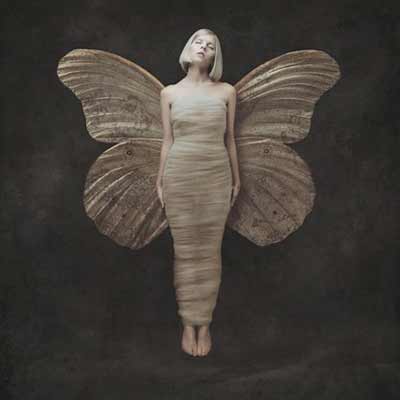As a pop record, AURORA’s debut doesn’t offer very much below the surface. But that’s not always a bad thing: Of Monsters and Men were like that too, and each of their records has felt considerably successful and enjoyable listenable. All My Demons Greeting Me as a Friend feels remarkably similar.
Consider Conqueror: it’s a giant, radio-friendly pop song with a simple piano riff for the chorus and a Coldplay-like guitar riff stacked behind it. It’s something your mother could listen to. But AURORA’s unusual, hypnotic voice makes it all feel very palatable. She gives it a sense of mystique.
Running with the Wolves is similar: the single is an obvious single that sounds destined for greatness in our Imagine Dragons era, but her voice saves the day again.
AURORA’s voice makes the quieter songs worth the price of admission. Lucky and Through the Eyes of a Child are two massive standouts on the record, given a sense of grace — and a hymnal quality — thanks to the Norwegian singer’s voice.
Much of these quieter tracks are reportedly influenced by Norwegian folk songs. Whether that’s true or not, they’ll bare an astounding resemblance to church music with North American audiences. As AURORA harmonizes with herself, she successfully emulates both Enya and the church choir, giving the album a much-needed sense of depth.
It all comes together on Warrior, the first potential single that feels like it really uses all of AURORA’s skills (and it comes very late in the album). Leaning on almost nothing but AURORA’s voice and a strong beat, Warrior lets the singer branch out and stretch her wings.
All My Demons Greeting Me as a Friend is an unusual pop album because it feels so stacked in its back half. Perhaps in a marketing move, the most bland radio songs are placed at the beginning of the record, and its most interesting radio-pleasers — Warrior and Murder Song (5, 4, 3, 2, 1) are left closer to the end.
When you listen to Warrior and Murder Song, it becomes apparent that AURORA listens to a lot of Björk. Before that, I wouldn’t have guessed. It’s on these tracks that AURORA feels like she’s free from the label’s requirements to put out generic pop songs and be herself, and they save the otherwise-generic singles from being totally forgettable (again, apart from her voice).
I’d love to hear an album of AURORA songs that sounds like the second half of this one. Until then, it’s clear that AURORA is a pop artist who still has to come into her own — but her future is promising.
